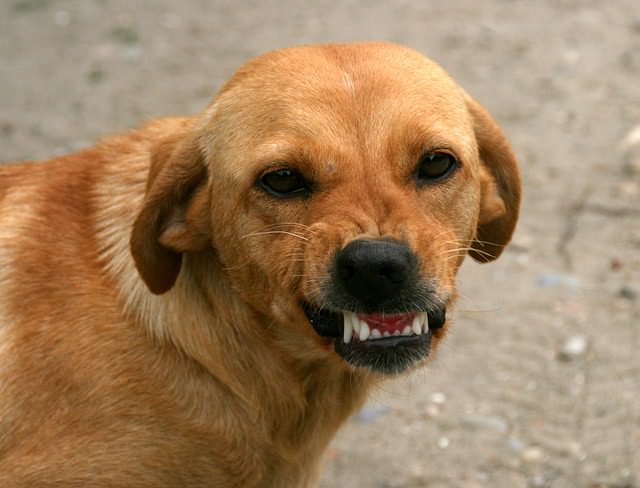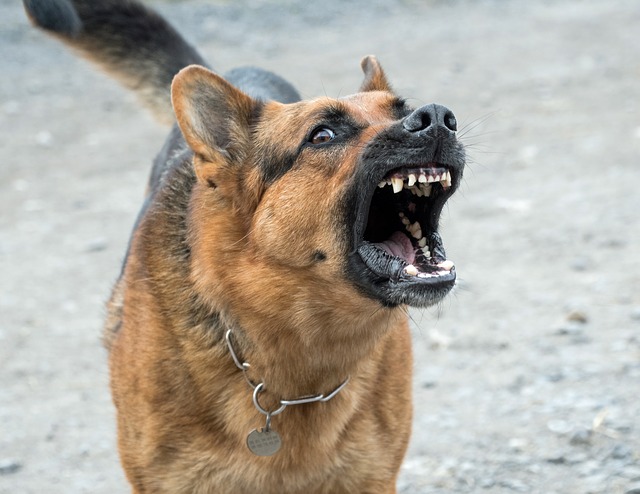Does your dog ever act aggressively? Does he attack people? Bite you? These outbursts can be embarrassing and dangerous. In order to keep yourself safe and restore peace to your environment, you must try to know the cause. Most acts of aggression actually result from fear. A truly aggressive, dominant dog is unusual, but fear-based reactions are very common. It is important for the safety of everyone that you know the difference.

Dogs have evolved with humans and certain traits have been selected through breeding, resulting in the dogs that we know today. True aggressiveness has not been selected as a desired trait, in most cases, so it’s not so common. Give your dog the benefit of doubt (and statistics) in an incident of perceived aggression.
First things first
If a dog has shown a tendency toward volatility and biting, keep all humans safe. Remove children from the situation and seek the advice of a veterinarian. Dissect the circumstances surrounding the incident and remember those details to share when you seek help. Confining the dog to a place where he feels safe and is not aroused is a good option while you find help.
LOG-istics
Fear incidents are usually reactions to something your dog finds fearful, and you might not know the trigger. Think about everything that the dog might have been exposed to prior to the incident. Write a log of every tiny detail surrounding the outburst, even silly things like outdoor noises or new neighbors moving in. Try to see the situation through the dog’s eyes.

Location, Location, Location
Where did the incident occur? Was your dog at the veterinarian’s office? In your front yard with a stranger approaching? Fear-based reactions are just that… reactions. They will occur in response to something, even though it might not be immediately obvious what your dog was responding to. In contrast, dominance responses tend to be calculated conflicts over resources (like food, items or territory), or in response to commands (like being asked to move or obey). They seem to escalate over time. Fear responses happen as a reaction to something, like the introduction of a new person, or being touched or handled in a way that is perceived as threatening.
Remember, if your dog is biting, he is probably afraid. Give him the benefit of the doubt and try to help address his fear. Because of the way that animals are wired, if your dog is biting, chances are, he fears his life is in danger. As his guardian, you want to be sure that he does not have to live in fear. Get professional help in any case of human-directed biting. Both you and your dog will benefit from it.
Join the conversation! Find me and other dog lovers on Facebook by clicking here.
